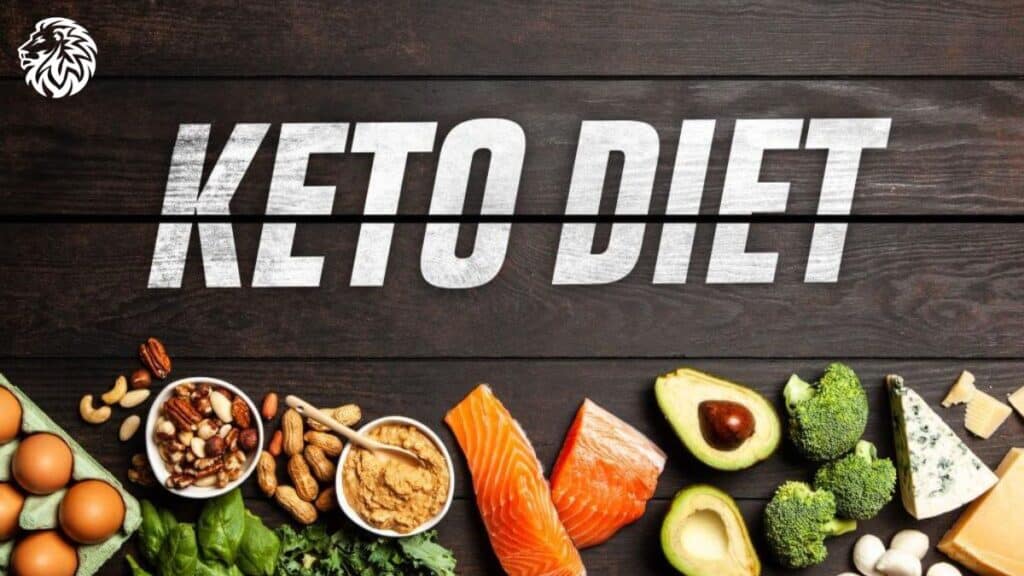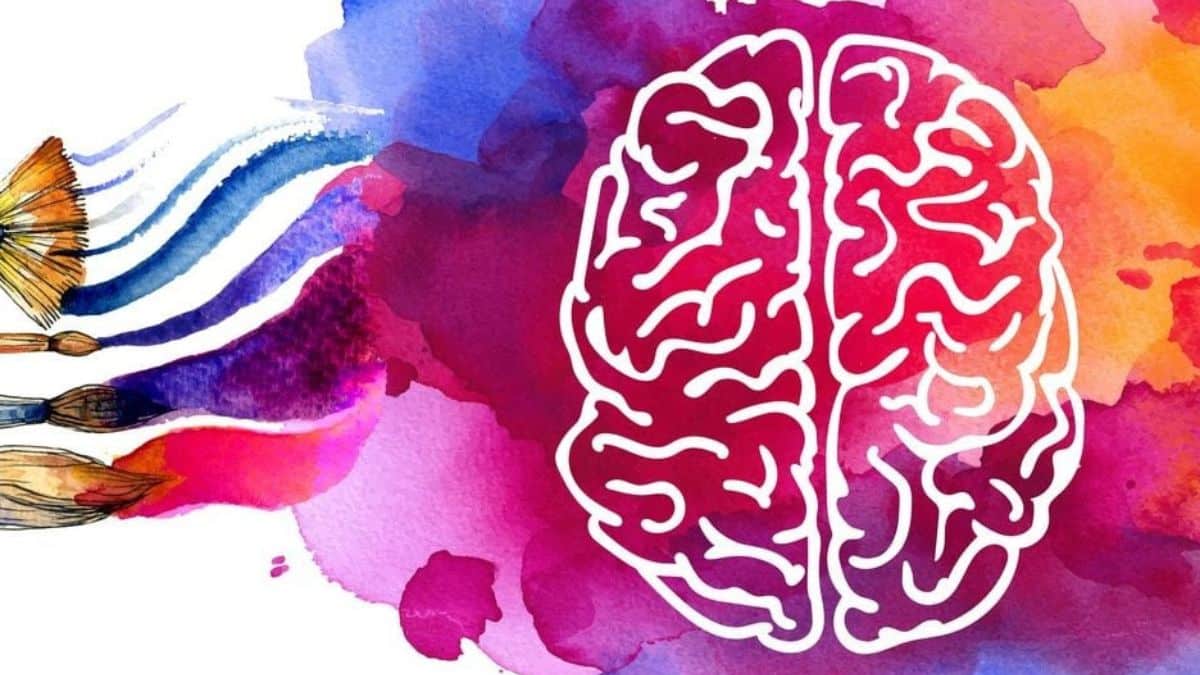The ketogenic diet, commonly known as the keto diet, has gained significant attention in recent years, not just for its effectiveness in weight loss but also for its potential impact on various aspects of health. Characterized by its high-fat, moderate-protein, and low-carbohydrate approach, the diet shifts the body’s metabolism towards ketosis, a state where fat, rather than carbohydrates, is primarily used for energy. This metabolic change is the cornerstone of the keto diet’s unique health implications.
Parallel to the rising interest in dietary impacts on physical health, there has been a growing awareness about brain health and cognitive function. Cognitive function encompasses various mental abilities, including memory, attention, problem-solving, and decision-making. Maintaining and enhancing brain health is a crucial aspect of overall well-being, especially as the global population ages.
This article explores the intersection of the ketogenic diet and brain health, delving into the hypothesis that the diet can positively influence cognitive functions. Emerging research suggests that the metabolic changes induced by the keto diet may offer neuroprotective benefits, potentially improving memory, focus, and even offering therapeutic possibilities for neurological disorders. The central thesis of this exploration is that the ketogenic diet, far beyond its role in weight management, holds promise as a beneficial lifestyle choice for enhancing and preserving brain health.
Background and Context of the Ketogenic Diet

Historical Perspective of the Ketogenic Diet
The ketogenic diet has a rich history dating back to the early 20th century, initially developed for therapeutic purposes rather than weight loss. Its origins can be traced to the 1920s when it was first introduced as a treatment for epilepsy. Physicians at the Mayo Clinic, notably Dr. Russell Wilder, formulated this diet to mimic the effects of fasting, which had been noted to reduce the frequency and intensity of seizures in epileptic patients. The diet’s success in managing epilepsy highlighted its potential impact on brain function and health, laying the groundwork for its modern applications.
Over the decades, the ketogenic diet’s focus shifted. While it continued to be a treatment option for epilepsy, especially in children, its effectiveness in promoting weight loss and managing metabolic disorders brought it into the mainstream spotlight. Today, it’s known more for its lifestyle and dietary benefits, with ongoing research into its broader health implications, including its effect on cognitive functions and brain health.
Basic Principles of the Ketogenic Diet
The ketogenic diet is fundamentally distinct from typical Western diets due to its unique macronutrient distribution. The diet is high in fats, moderate in proteins, and very low in carbohydrates. Typically, the macronutrient ratio stands around 70-80% fats, 20-25% protein, and 5-10% carbohydrates. This distribution is crucial for pushing the body into a metabolic state known as ketosis.
In ketosis, the body, deprived of its usual carbohydrate-based energy source, shifts to burning fats for energy. This process leads to the production of ketones, molecules that the body can use as an alternative energy source, especially for the brain. This shift has significant implications for body functioning and health.
The impact of this macronutrient distribution extends beyond mere weight loss. The high intake of healthy fats (like those from avocados, nuts, and olive oil) and the reduction of carbohydrate intake can lead to improved blood lipid profiles, reduced inflammation, and enhanced insulin sensitivity. These changes are particularly relevant when considering the potential effects on brain health, as they contribute to a more stable energy supply for the brain and may reduce neurological inflammation, a key factor in cognitive decline.
The ketogenic diet’s historical roots in epilepsy treatment and its distinctive approach to macronutrient consumption set the stage for a deeper exploration of its potential benefits on brain health and cognitive functions.
The Science Behind Keto and Brain Health

How Ketosis Affects Brain Function
Ketosis, the metabolic state induced by the ketogenic diet, has a profound impact on brain function. Under normal dietary conditions, the brain relies heavily on glucose for energy. However, during ketosis, the scarcity of glucose forces the brain to adapt by using ketones for energy. This switch in energy sources has several implications for brain health.
Ketones are considered to be a more efficient and stable fuel source compared to glucose. They generate fewer reactive oxygen species and less free radical damage, which are known to contribute to inflammation and neurodegeneration. Additionally, ketones enhance mitochondrial efficiency and may improve the brain’s energy reserves. This metabolic efficiency is thought to contribute to enhanced cognitive functions and resilience against neurological stress.
Research Linking Keto Diet to Improved Cognitive Function
Numerous studies have investigated the cognitive benefits of the ketogenic diet. For instance, research has shown improvements in memory function and cognitive performance in older adults following a ketogenic diet. Another study noted enhanced cognitive abilities in subjects following a keto regimen, attributing these benefits to the improved energy metabolism in the brain.
Moreover, the diet’s impact on brain-derived neurotrophic factor (BDNF) levels further supports its cognitive benefits. BDNF is crucial for brain plasticity, learning, and memory. Ketogenic diets have been shown to increase BDNF levels, potentially contributing to improved cognitive functions.
Impact on Neurological Disorders
The ketogenic diet’s impact on neurological disorders is perhaps its most profound application in brain health. The diet’s historical use in treating epilepsy underscores its neuroprotective properties. It reduces the frequency and severity of seizures, often when medications are ineffective.
Beyond epilepsy, emerging research suggests that the ketogenic diet may offer therapeutic benefits for Alzheimer’s disease. Alzheimer’s is characterized by impaired glucose metabolism in the brain. The ketogenic diet, by providing an alternative energy source through ketones, may alleviate these metabolic deficiencies and slow disease progression.
Similarly, preliminary studies indicate potential benefits for Parkinson’s disease, Amyotrophic Lateral Sclerosis (ALS), and even traumatic brain injuries. The common thread in these conditions is the diet’s ability to improve neuronal energy metabolism and reduce oxidative stress and inflammation, which are critical factors in these neurological diseases.
In summary, the science behind the ketogenic diet and brain health is rooted in its ability to shift brain metabolism from glucose to ketones, enhancing energy efficiency and reducing inflammation. Research continues to unveil its potential in improving cognitive function and offering new avenues for treating various neurological disorders.
Potential Benefits of Keto on Brain Health

Benefits for Memory, Focus, and Cognitive Function
The ketogenic diet’s influence on cognitive abilities, such as memory and focus, is one of its most compelling potential benefits. By altering the brain’s energy metabolism, the diet can enhance cognitive performance in various ways:
- Improved Memory Function: Ketones are an efficient fuel source for the brain, potentially enhancing memory. Studies have shown that individuals on a ketogenic diet experience improvements in memory tasks, likely due to the enhanced energy availability and reduced oxidative stress in brain cells.
- Enhanced Focus and Mental Clarity: Many individuals report heightened focus and mental clarity on the ketogenic diet. This effect can be attributed to the stabilizing effect of ketones on neurotransmitter levels in the brain, leading to improved concentration and attention span.
- Overall Cognitive Function: The ketogenic diet’s impact on overall cognitive function is seen in various age groups, with studies indicating improved cognitive performance in both younger and older adults. This improvement is believed to be linked to the enhanced mitochondrial function and energy efficiency in brain cells fueled by ketones.
Anti-Inflammatory Effects on the Brain
Inflammation is a critical factor in many neurodegenerative diseases and cognitive decline. The ketogenic diet has demonstrated potent anti-inflammatory effects, which are beneficial for brain health:
- Reduction of Neuroinflammation: Ketones have been shown to reduce the levels of inflammatory markers in the brain. This reduction in inflammation can protect neurons from damage and improve brain function.
- Neuroprotective Properties: The diet’s ability to lower inflammation in the brain also imparts neuroprotective benefits, potentially safeguarding the brain against a variety of neurodegenerative conditions.
Slowing Cognitive Decline in Aging Populations
The aging process is often accompanied by a decline in cognitive function. The ketogenic diet’s potential in slowing this decline is an area of growing interest:
- Alzheimer’s Disease and Dementia: In conditions like Alzheimer’s, where brain glucose metabolism is impaired, ketones can provide an alternative energy source. This can help maintain brain function and potentially slow disease progression.
- Age-Related Cognitive Decline: For the general aging population, the ketogenic diet may help mitigate the typical cognitive decline. By improving energy metabolism and reducing oxidative stress in brain cells, the diet can support healthier brain aging.
- Long-term Brain Health: Adopting a ketogenic lifestyle may have long-term benefits for brain health, potentially delaying or reducing the risk of cognitive impairment in older adults.
In conclusion, the potential benefits of the ketogenic diet on brain health are vast, ranging from improved memory and focus to significant anti-inflammatory effects and the possibility of slowing cognitive decline in aging populations. These benefits highlight the ketogenic diet as not just a tool for weight management, but a potential ally in maintaining and enhancing brain health.
Risks and Considerations of the Ketogenic Diet on Brain Health

Potential Risks and Side Effects
While the ketogenic diet can offer significant benefits for brain health, it is not without potential risks and side effects, particularly when not properly managed:
- Nutrient Deficiencies: The restrictive nature of the diet can lead to deficiencies in essential nutrients such as vitamins, minerals, and fiber, which are crucial for brain health and overall well-being.
- Keto Flu and Cognitive Effects: In the initial stages of the diet, some individuals experience the “keto flu,” characterized by symptoms like brain fog, headache, and fatigue, which can temporarily impair cognitive functions.
- Long-Term Brain Health Concerns: Long-term adherence to a strict ketogenic diet raises concerns about potential negative effects on brain health due to sustained high fat intake and extremely low carbohydrate levels.
Populations for Whom the Keto Diet Might Not Be Suitable
Certain groups should approach the ketogenic diet with caution or avoid it altogether, as it may exacerbate pre-existing conditions or pose health risks:
- Individuals with Certain Medical Conditions: People with disorders of fat metabolism, pancreatic insufficiency, liver conditions, or certain mitochondrial diseases may be adversely affected by the high-fat content of the diet.
- Pregnant and Breastfeeding Women: Due to the need for balanced nutrition and potential risk factors, pregnant and breastfeeding women should consult healthcare professionals before considering a ketogenic diet.
- Children and Adolescents: While the diet may be used under medical supervision for conditions like epilepsy in children, its long-term effects on growth and development in young populations are still not fully understood.
Recommendations for Safely Implementing the Diet
For those considering the ketogenic diet for cognitive benefits, careful planning and consideration are key to minimizing risks:
- Consultation with Healthcare Professionals: Before starting the diet, it’s essential to consult with a healthcare provider or a registered dietitian to assess individual health needs and risks.
- Balanced Approach to Nutrition: Ensure the diet includes a variety of nutrient-rich foods to prevent deficiencies. Incorporating sources of omega-3 fatty acids, fiber, and essential vitamins and minerals is crucial.
- Monitoring and Adjustment: Regular monitoring of health parameters and cognitive function is important, especially during the initial stages of the diet. Adjustments should be made based on individual responses and side effects.
- Sustainable and Flexible Approach: Adopting a more flexible approach to the ketogenic diet, such as cyclical keto or a modified keto diet, can help mitigate long-term risks and make the diet more sustainable.
In summary, while the ketogenic diet can be beneficial for cognitive function and brain health, it is essential to approach it with awareness of its potential risks and limitations. Tailoring the diet to individual needs and conditions, with professional guidance, can maximize its cognitive benefits while ensuring overall health and safety.
Conclusion: Evaluating the Role of the Ketogenic Diet in Enhancing Brain Health
The exploration of the ketogenic diet’s relationship with brain health opens a fascinating window into how dietary choices can significantly influence cognitive function and neurological well-being. This diet, characterized by high fat, moderate protein, and low carbohydrate intake, induces a metabolic state known as ketosis, which has been shown to have several potential benefits for the brain.
Key Points Summary
- Historical Roots and Principles: Originating as a treatment for epilepsy, the ketogenic diet’s unique macronutrient distribution shifts the body’s energy reliance from glucose to ketones, offering an alternative and efficient fuel source for the brain.
- Cognitive Benefits: Research indicates that the diet may enhance memory, focus, and overall cognitive function. These benefits are attributed to the improved energy metabolism and reduced oxidative stress facilitated by ketones.
- Neuroprotective Effects: The diet’s potential in treating and possibly preventing neurological disorders like epilepsy, Alzheimer’s, and Parkinson’s disease underscores its neuroprotective properties.
- Anti-Inflammatory Influence: The ketogenic diet’s anti-inflammatory effects are beneficial for brain health, potentially protecting against neurodegeneration and cognitive decline, especially in aging populations.
- Risks and Considerations: While promising, the diet is not without risks and may not be suitable for everyone. Nutrient deficiencies, the keto flu, and potential long-term health impacts warrant careful consideration and planning.
Reflection on Future Research
The ketogenic diet’s impact on brain health is a burgeoning field of study with significant potential for future research. As we continue to unravel the complexities of the brain and how it is affected by our diet, the ketogenic diet presents a promising area for further exploration, especially in understanding and potentially mitigating neurodegenerative diseases and cognitive decline.
Final Encouragement
For readers considering the ketogenic diet, it’s imperative to approach this change with informed caution. Consulting healthcare professionals, such as dietitians or doctors, is crucial to ensure that the diet aligns with individual health needs and circumstances. Personalized guidance can help navigate the potential risks and tailor the diet to maximize its cognitive benefits.
In conclusion, the ketogenic diet’s intriguing relationship with brain health offers both hope and a call for more research. As we learn more about the diet’s multifaceted impact on the brain, it stands as a testament to the profound influence of dietary choices on our overall health and well-being.
Frequently Asked Questions on the Ketogenic Diet and Brain Health
1. Can the ketogenic diet improve memory in older adults?
- Answer: Yes, there is evidence suggesting that the ketogenic diet can improve memory in older adults. Studies have shown that the diet’s ketone production provides an efficient energy source for the brain, potentially enhancing memory and cognitive functions. However, individual responses can vary, and it’s important to consult with a healthcare professional before starting the diet, especially in older age.
2. Is the ketogenic diet safe for long-term brain health?
- Answer: The long-term effects of the ketogenic diet on brain health are still under research. While short-term benefits like improved focus and cognitive function are documented, the long-term implications, particularly of strict adherence to the diet, require further study. It’s advisable to approach the diet with a balanced and monitored plan, especially for prolonged durations.
3. Can the ketogenic diet benefit children with neurological disorders?
- Answer: Yes, the ketogenic diet has been used successfully to treat children with epilepsy, reducing the frequency and severity of seizures. Its effectiveness in other neurological disorders in children, however, is still being explored. It’s crucial that any use of the diet for neurological conditions in children is supervised by medical professionals to ensure safety and proper nutrition.
4. How does the ketogenic diet reduce inflammation in the brain?
- Answer: The ketogenic diet reduces inflammation in the brain through several mechanisms. Ketones produced during the diet have anti-inflammatory properties. They reduce oxidative stress and enhance mitochondrial function, which in turn decreases the production of inflammatory markers in the brain. This can potentially protect against neurodegenerative diseases and cognitive decline.
5. Are there any specific types of ketogenic diets that are best for brain health?
- Answer: While there’s no one-size-fits-all ketogenic diet for brain health, variations like the Modified Atkins Diet (MAD) or MCT (Medium Chain Triglycerides) Oil-based diets are often used. These variations allow for a bit more flexibility and can be easier to maintain. It’s important to choose a version of the diet that aligns with your health goals and lifestyle, preferably under the guidance of a nutrition or healthcare professional.







